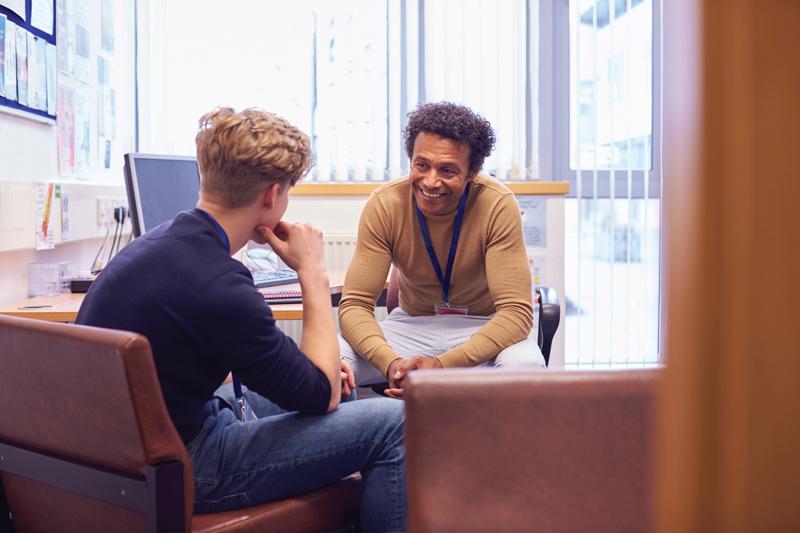Research Alert
State Standards Miss the Parties
State history and civics standards fall short in helping teachers prepare students to become informed citizens in today's polarized political climate, according to a recent study by the Center for Information and Research on Civic Learning and Engagement (CIRCLE).
In particular, the report argues, the standards don't go into enough detail about the two major political parties and their ideological underpinnings—key drivers of the contemporary political landscape.
In their analysis of middle and high school civics and history standards, the center's researchers found that 43 states require students to learn about political parties, but that most do so in a way that "promotes a simplistic understanding of the [functional] role that political parties play in a democracy."
Only 10 states ask students to study important political issues in relation to the political parties, while just eight require students to address the ideological foundations of the parties. Just one state—Rhode Island—encourages students to examine their own beliefs within the partisan landscape.
The lack of attention to the positions and values of political factions misses opportunities for helping students develop both a deeper grasp of contemporary political currents and a "basic understanding of modern elections and campaigns," the report says.
The group encourages educators to see the state standards as a "starting point" and to use "discussion and inquiry in the classroom to help students make connections between issues, ideology, and party."
Read the study: "State Standards Scratch the Surface of Learning About Political Parties and Ideology."
Screen Grab
Soapbox Speakers
Last year, the Mikva Challenge, an organization that helps youth become active citizens and community leaders, invited students to raise their voices about issues that affect them. In a public speaking competition, students in Chicago, New York, and Washington, D.C., delivered in-person addresses as part of Project Soapbox, while students from around the country recorded speeches online as part of the American Soapbox Initiative. Some of the most powerful of the short speeches included Maya Branch on the intersection of race and gender, LaShawn Massenberg sharing an emotional story about homicide, and Ben Domus addressing segregation.
School Tools
Telling Untold Stories in U.S. History
The American Social History Project's Center for Media and Learning makes available innovative print, visual, and multimedia materials that bring alive the diverse social and cultural history of the United States. The materials focus on the struggles of working people and ordinary Americans, stories often overlooked in traditional history teaching. Resources include a series of Who Built America? books, documentaries on eras and topics across American history, plus public seminars and online projects.
Another multimedia resource for giving students insight into social justice issues comes from the Southern Poverty Law Center's Teaching Tolerance. Educators can order free film kits, which include movies, teacher's guides, and class activities, on topics like the Children's March in Birmingham, Alabama, and the United Farm Workers Union.
Turn and Talk
Q&A
with Louise Dubé, Executive Director of iCivics
Tell us about the beginning of iCivics and what the site offers.
After retiring from the Supreme Court, Justice Sandra Day O'Connor had become dismayed at the lack of knowledge that young people had about how our system of democracy works. She founded iCivics in 2009 to challenge the status quo of diminishing and uninspiring civic education.
Today, iCivics offers a free, digital civic education platform with more than 150 lessons plans, 19 games, and digital tools for teachers and students. We create innovative educational video games and classroom resources that teach young people about our political systems.
Why did Justice O'Connor choose gamification, in specific, to address declining civic knowledge?
The Justice saw that middle school was a crucial time to engage young people. She started working with a small group of colleagues on a plan. Their first initiative was a civics website, which didn't catch on.
Justice O'Connor then met education games expert Jim Gee, who had just written a book titled What Video Games Have to Teach Us About Learning and Literacy. He explained that games were about problem solving, and that by putting students in the shoes of officials and letting them make the everyday decisions officials had to make, students would learn firsthand how these processes work. The Justice became fascinated with the possibilities that games offered to re-imagine civic education.
Our games allow students to step into any role they choose—judge, member of Congress, or community activist fighting for local change—and do the job they do. Educational video games allow for concepts to happen to us. They convey important information to students, give them agency to address real-world issues, and teach skills for good citizenship.
How has your site's usage changed since the 2016 presidential election?
Students and teachers flocked to iCivics in record numbers during the last presidential election season (roughly 170,000 teachers in all) at rates triple that of previous years. In November alone, our games were played more than 3 million times. In a survey of 1,200 teachers who used iCivics last year, we learned that usage was basically split between red and blue states. Teachers told us that iCivics helped foster productive classroom discussions and lessons in this divisive political climate.
What challenges has the current political climate brought to iCivics?
iCivics is nonpartisan, so that any classroom in any state can use our games without fear of bringing political agendas into the discussion. But, as the country has become more polarized, nonpartisanship is presenting new challenges. What started out as a nonpartisan stance in some of our games is now being challenged as potentially partisan, because the policy proposals in real life are more polarized.
We've become more careful, and we review our content for potential bias without watering it down so much that it becomes irrelevant. The content is reviewed internally by several education experts. We also get feedback from the field. When we get as many comments from the right as we do from the left, we feel like we've probably found the right neutral balance.
Editor's note: This interview has been edited for space and clarity.
Numbers of Note
What Goes On in Civics Class?
As part of the 2014 NAEP civics assessment, 8th graders were asked about activities they engaged in at least weekly in their civics or social studies classes.
Figure
Source: National Assessment of Educational Progress. (2014). Civics assessment: learning contexts.
Relevant Read
Rebooting Social Studies: Strategies for Reimagining History Classes by Greg Milo (Rowman & Littlefield, 2017)
How can we teach "everything that has ever happened, everywhere" without exhausting our students? That's the question that Greg Milo sets out to answer in this guide to getting past dreary survey-style history courses. Milo, who was a high school social studies teacher for 13 years, points out the many challenges of teaching history—having to cover too much territory, placing more emphasis on rote facts rather than exploring fascinating stories and complexities—and offers practical, outside-the-box ideas for addressing them.
The book offers specific suggestions to add depth to the content and imbue lessons with personality. For example, a teacher covering imperialism could turn to pop culture's Star Wars or The Hunger Games to illustrate how people in power can take advantage of the vulnerable. Milo also argues that instead of rushing to cover facts about long spans of time, social studies teachers should focus on a few key milestones, teaching their students how to analyze human behavior, develop problem solving skills, and practice critical thinking.
For the teacher concerned about such experimentation, Milo suggests that "trying—whether or not every detail is perfect—is key," especially if the end goal is to teach students how to analyze and gain perspective. History is messy, complicated, and intriguing—and Milo argues that teaching social studies should be, too.
Page Turner
"Teachers must dispel the notion that global citizenship and national citizenship are mutually exclusive."
—Ariel Tichnor-Wagner







